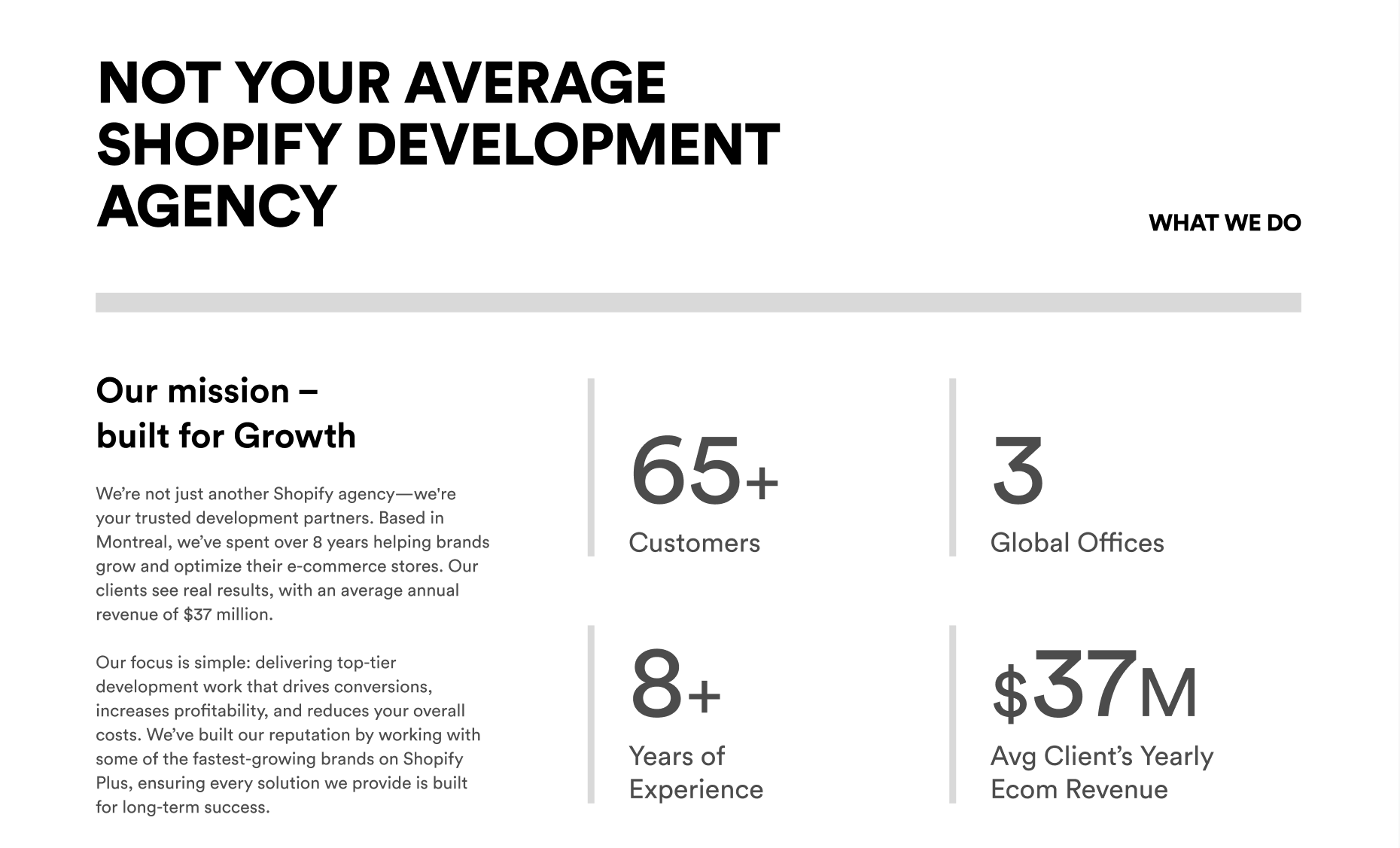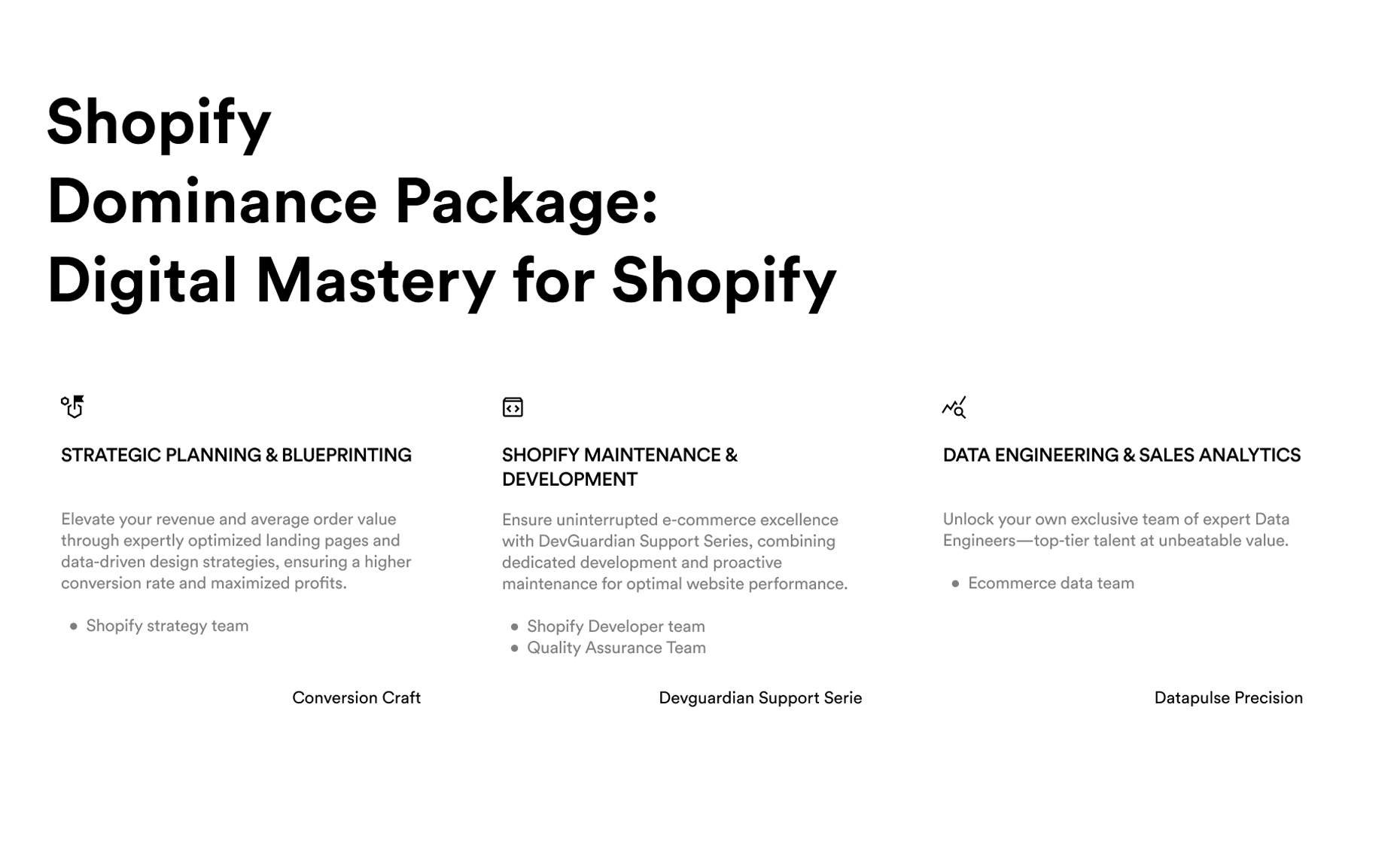
Discover how to seamlessly integrate your content management system (CMS) with Shopify to create a powerful and efficient e-commerce platform.
In today's fast-paced digital world, having a strong online presence is crucial for businesses of all sizes. One tool that has gained immense popularity among e-commerce entrepreneurs is Shopify. With its user-friendly interface and powerful features, Shopify allows businesses to create and manage their online stores effortlessly. However, to truly unlock the full potential of their online business, entrepreneurs often integrate Shopify with a Content Management System (CMS). In this guide, we will delve into the intricacies of CMS Shopify integration and explore the numerous benefits it offers.
Understanding CMS and Shopify Integration
Before we dive into the integration process, let's first understand what CMS is and how Shopify plays a crucial role in the e-commerce landscape.

When it comes to integrating a Content Management System (CMS) with Shopify, it's essential to grasp the significance of combining these two powerful tools. A seamless integration between a CMS and Shopify can enhance the overall user experience, streamline content management, and optimize online sales strategies.
What is CMS?
CMS stands for Content Management System. It is a software that allows users to create, publish, and manage digital content efficiently. CMS streamlines the content creation process, making it easier for businesses to update their websites, create blog posts, and manage product pages without the need for technical expertise.
Moreover, a robust CMS enables content personalization, SEO optimization, and multi-channel publishing, empowering businesses to engage with their audience effectively across various online platforms.
The Role of Shopify in E-commerce
Shopify, on the other hand, is a popular e-commerce platform that provides businesses with the necessary tools to sell products online. From setting up a visually appealing storefront to managing orders and inventory, Shopify simplifies the entire e-commerce journey for entrepreneurs.
Furthermore, Shopify offers a wide range of features such as secure payment gateways, customizable themes, and mobile responsiveness, making it a preferred choice for businesses of all sizes looking to establish a strong online presence and drive sales.
The Importance of CMS Shopify Integration
Integrating CMS with Shopify offers businesses a myriad of benefits, enhancing both user experience and streamlining business operations. Let's explore these advantages in detail.

When it comes to integrating a Content Management System (CMS) with Shopify, the benefits go beyond just user experience and operational efficiency. One significant advantage is the ability to gather valuable data insights. By combining the power of CMS for content management and Shopify for e-commerce, businesses can access comprehensive analytics that provide deep insights into customer behavior, preferences, and trends. This data-driven approach enables businesses to make informed decisions, optimize marketing strategies, and tailor their offerings to meet customer demands effectively.
Enhancing User Experience
An integrated CMS allows entrepreneurs to create and manage engaging content effortlessly. With a seamless CMS Shopify integration, businesses can leverage the power of their CMS to enrich their website with blog posts, tutorials, and product descriptions. This, in turn, enhances the overall user experience, providing visitors with valuable information and building trust in the brand.
Moreover, a well-integrated CMS and Shopify platform can also personalize the user experience through targeted content delivery. By analyzing customer data and behavior, businesses can deliver personalized recommendations, product suggestions, and promotional offers, creating a more tailored and engaging shopping experience for each visitor. This level of personalization not only enhances user satisfaction but also increases conversion rates and customer loyalty.
Streamlining Business Operations
CMS Shopify integration simplifies the process of managing content and products in real-time. By seamlessly synchronizing their CMS and Shopify store, businesses can effortlessly update inventory, product details, and prices. This integration eliminates the need for manual updates, saving time and ensuring consistency across all platforms.
Furthermore, the seamless integration of CMS and Shopify can also facilitate multi-channel selling. Businesses can easily expand their reach by synchronizing their product listings across various sales channels, including social media platforms and online marketplaces. This omnichannel approach not only increases brand visibility but also allows businesses to cater to a wider audience, driving sales and revenue growth.
Steps to Integrate CMS with Shopify
Now that we understand the benefits, let's explore the step-by-step process of integrating a CMS with Shopify.
Integrating a Content Management System (CMS) with your Shopify store can significantly enhance your e-commerce operations. By seamlessly connecting your CMS with Shopify, you can streamline content creation, product management, and overall website maintenance.
Choosing the Right CMS for Your Shopify Store
Before diving into the integration process, it is essential to select a CMS that aligns with your business needs. Consider factors such as ease of use, scalability, and the availability of relevant plugins that seamlessly integrate with Shopify.
Popular CMS options for integration with Shopify include WordPress, Magento, and Drupal. Each CMS offers unique features and functionalities, so it's crucial to assess which platform best complements your e-commerce goals and workflow.
Best 8 CMS for Shopify in 2024
The Integration Process
The actual integration process can vary depending on the chosen CMS. Regardless, the first step typically involves installing the CMS plugin or app from the Shopify App Store. Once installed, users can follow the on-screen instructions to establish a connection between their CMS and Shopify accounts. From there, it's a matter of customizing the integration based on specific requirements, such as syncing product details and managing content.
During the integration process, it's important to ensure seamless data synchronization between your CMS and Shopify. This includes mapping out how product information, pricing, and inventory levels will be managed across both platforms. Additionally, consider how content updates, such as blog posts or landing pages, will be reflected on your Shopify storefront in real-time.
Key Features of CMS Shopify Integration
Now that we have covered the integration process, let's explore some of the key features that CMS Shopify integration offers.

Content Management Capabilities
An integrated CMS provides powerful content management capabilities, allowing businesses to create, edit, and publish content seamlessly. With a user-friendly interface and robust features, businesses can easily manage blog posts, create landing pages, and update website content directly from their CMS.
Moreover, a well-integrated CMS like Shopify offers advanced content scheduling options, enabling businesses to plan and automate content publication. This feature is particularly useful for maintaining a consistent online presence and engaging with customers through timely and relevant content updates.
SEO and Marketing Tools
By integrating a CMS with Shopify, businesses gain access to SEO and marketing tools that boost their online visibility. From optimizing product descriptions for search engines to creating meta tags and implementing tracking codes, an integrated CMS provides the necessary tools to improve a website's search engine rankings and drive more organic traffic.
In addition to basic SEO features, a CMS like Shopify offers integration with popular marketing tools such as email marketing platforms and social media management tools. This seamless integration streamlines marketing efforts, allowing businesses to create cohesive campaigns that reach their target audience effectively across multiple channels.
Troubleshooting Common Issues in CMS Shopify Integration
While CMS Shopify integration offers numerous benefits, it's essential to be prepared for potential challenges along the way. Let's explore some common issues and how to troubleshoot them.
One common issue that users may face during CMS Shopify integration is data synchronization errors. These errors can occur when there is a discrepancy between the data stored in the CMS and Shopify, leading to inconsistencies in product information, pricing, or inventory levels. To address this issue, users should ensure that all data fields are mapped correctly between the CMS and Shopify, and perform regular data audits to identify and rectify any discrepancies.
Dealing with Integration Errors
In some cases, users may encounter errors during the integration process. To troubleshoot these issues, it's advisable to check the integration documentation provided by the CMS and Shopify support. Additionally, reaching out to the respective support teams can help resolve any technical glitches and ensure a smooth integration.
Another common challenge in CMS Shopify integration is maintaining consistent branding across both platforms. Ensuring that the design elements, typography, and color schemes align between the CMS and Shopify can enhance user experience and build brand recognition. Regularly reviewing and updating the website's design to reflect any changes in branding guidelines is crucial for a cohesive online presence.
Ensuring Smooth Operation Post-Integration
After successfully integrating a CMS with Shopify, it's essential to stay vigilant and monitor the operations closely. Regularly updating CMS plugins, conducting routine security checks, and keeping an eye on website performance are crucial to maintaining a seamlessly integrated online store.
In conclusion, CMS Shopify integration is a valuable step for businesses looking to enhance their online presence and streamline their operations. By leveraging the power of a CMS, entrepreneurs can effortlessly create engaging content, optimize their website for search engines, and manage their online store with ease. With the step-by-step guide provided above, you can embark on your CMS Shopify integration journey and unlock the full potential of your e-commerce business.











